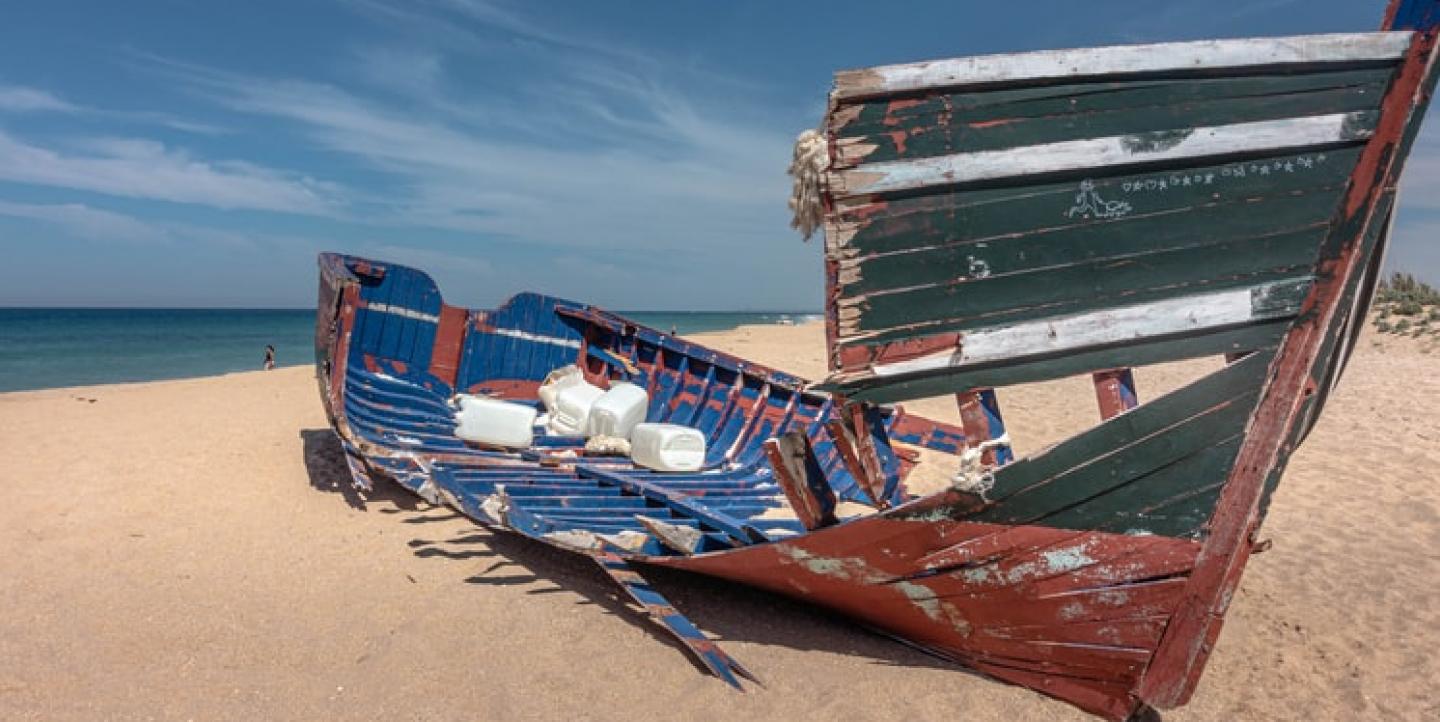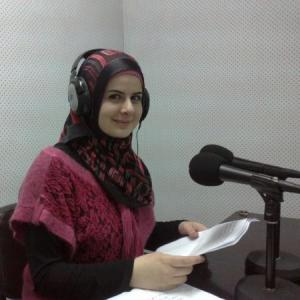IJNet's parent organization, ICFJ, partnered with the Facebook Journalism Project on its Reporting on Refugee Communities Amidst a Pandemic Program. This article is the second in a three-part series highlighting reporting produced by program participants. Read the first article here.
COVID-19 has exacerbated already difficult conditions in many countries in the Middle East and North Africa — especially those experiencing economic problems and armed conflict. These conditions are often reflected among vulnerable groups, including among people experiencing poverty, and refugees.
In an ICFJ-Facebook Journalism Project training program, journalists from countries in the region produced in-depth, compelling stories focused on the impacts of COVID-19 on refugee communities. Here’s a look at reporting projects in Yemen, Iraq and other MENA countries, and the challenges journalists navigated to carry out their work.
Yemen
Freelance Yemeni journalist Sahar Mohamed Abdul Razzaq produced a report published by Al-Mushahed about international funding distributed in Yemen to confront COVID-19. Razzaq said she had difficulty accessing refugee camps due to the unsafe conditions. Communicating with organizations that work with displaced persons and refugees was also a challenge.
Journalist Rania Farhan reported on the status of women in a region that lacks basic health services. She traveled long distances to interview refugees in person, which security issues in the country made more challenging. Her final report was published on the Yemeni news channel, Belqees TV.
Freelance journalist Rafat Almamary's report, titled Yemen's Marginalized People: Between the Hell of War and the Pandemic was published by Al-Mushahed. “The most important difficulties I encountered while preparing the story was that the main source who was infected with the coronavirus was afraid of appearing in the media,” he said. “Other challenges included the security conditions and long distances to photograph the camps for displaced people, as well as their proximity to fire lines and clashes.”
[Read more: Reporting on refugees during the pandemic in Egypt and Morocco]
Journalist Bassam Al-Qadhi published a piece on Al-Ayyam, called Refugees in Yemen Face the Coronavirus Without Water. Among the challenges he navigated, Al-Qadhi struggled to obtain approval from the security authorities in order to film in the refugee camps.
In a short documentary, journalist Haitham Alqaoud spotlighted the lives of African refugees in Yemen and how they arrived in the country. He shares their stories in light of COVID-19, which has increased the suffering of Yemenis and refugees alike. Alqaoud struggled with Yemen’s internet connectivity issues, which made communicating with others more challenging. He also had difficulty obtaining permits to allow him to photograph the camps, and received no response from UN agencies regarding his request to travel to the camps to conduct interviews with refugees.
Journalist Abeer Maresh produced a report about refugees in Yemen confronting the coronavirus as more than half of doctors (52%) in the Taiz governorate migrated out of the area due to the ongoing war in the country. The migration of doctors has further strained the severity of the crisis, making it even more difficult for refugees in the region to receive adequate care. This has been the most prominent issue during the pandemic, Maresh explained, noting that residents in the camps don’t know how to protect themselves from spreading epidemics like the coronavirus.
Iraq
Iraqi journalist and filmmaker Farah Adnan Raoof Al-Rubaye produced a 30-minute investigative podcast, published by Raseef22, that explores the economic impact of the pandemic on Syrian and Palestinian refugees inside and outside the camps in Iraq. “The pandemic has imposed restrictions on movement, in addition to the difficulties created by some official bodies requiring an official request before conducting any interview,” she said of the challenges she faced when reporting.
Journalist Sanar Hasan reported the article, Exploitation, Harassment and Crime: Details of Children Begging on the Streets of Baghdad, which was published by Al-Jazeera. "[I] faced difficulty with the unwillingness of families of displaced children to include their children in any reporting, or to talk about their working conditions," said Hasan. "[The families] also feared the gangs that the children work for.”
Journalist Inass Halim Dakhel produced a video report that examines the effects of the pandemic on the mental and physical health of displaced women in Baharka Camp in Erbil Governorate, Iraq. The report was broadcast on the Al-Rasheed Satellite Channel. Based in Baghdad, Dakhel had difficulties reaching the camp and finding women who were willing to discuss their suffering on camera. She also struggled to communicate with the photographer as he works in Erbil, more than 300 kilometers from her.
[Read more: This journalist wants to raise the bar for investigative reporting in Nigeria]
Libya
Libyan journalist Ibtisam Agfer reported on the effects of the pandemic on the Tawergha refugee camp in Benghazi for Africa Gate News. Her story incorporates both text and photos. For her, the most challenging situation she faced was finding refugees who were willing to talk, she said, as many in the camp refused. Agfer was once even expelled from the camp herself.
Turkey
Nihad Dahman, a journalist and filmmaker based in Turkey, reported on displaced persons during the pandemic. She explained how she struggled to reach people who were infected with the virus in order to talk about their experiences. Another challenge was dealing with government departments and obtaining needed authorizations to be able to carry out her reporting.
Tunisia
Tunisian journalist Mohamed Balti produced a video report for Radio Tunisienne about one refugee's experience successfully integrating into the local community. In the article, Balti explores how refugees can benefit from humanitarian assistance programs.
Lebanon
In Lebanon, journalist Tarek Abd Elgalil’s article, Early Marriage is Besieging Syrian Refugee Women in Lebanon: Deprivation of Education, and a Tragedy, published by Daraj, explores how COVID-19 led some families to force their underage daughters to drop out of school and get married in order to save expenses. Among the challenges he faced to report the story, Abdeljaleel was forced to navigate Lebanon’s total lockdown during the pandemic. He also found it difficult to identify refugees willing to be interviewed about such a sensitive subject.
Sarah Abdallah is a Ph.D. student in linguistics and communication, with degrees in law, political science and linguistic engineering. She is the IJNet Arabic Translator, and a reporter with l'Orient Le Jour.
This article was originally published by our Arabic site. It was translated to English by Sarah Abdallah.
Main image CC-licensed by Unsplash via Christopher Eden.


